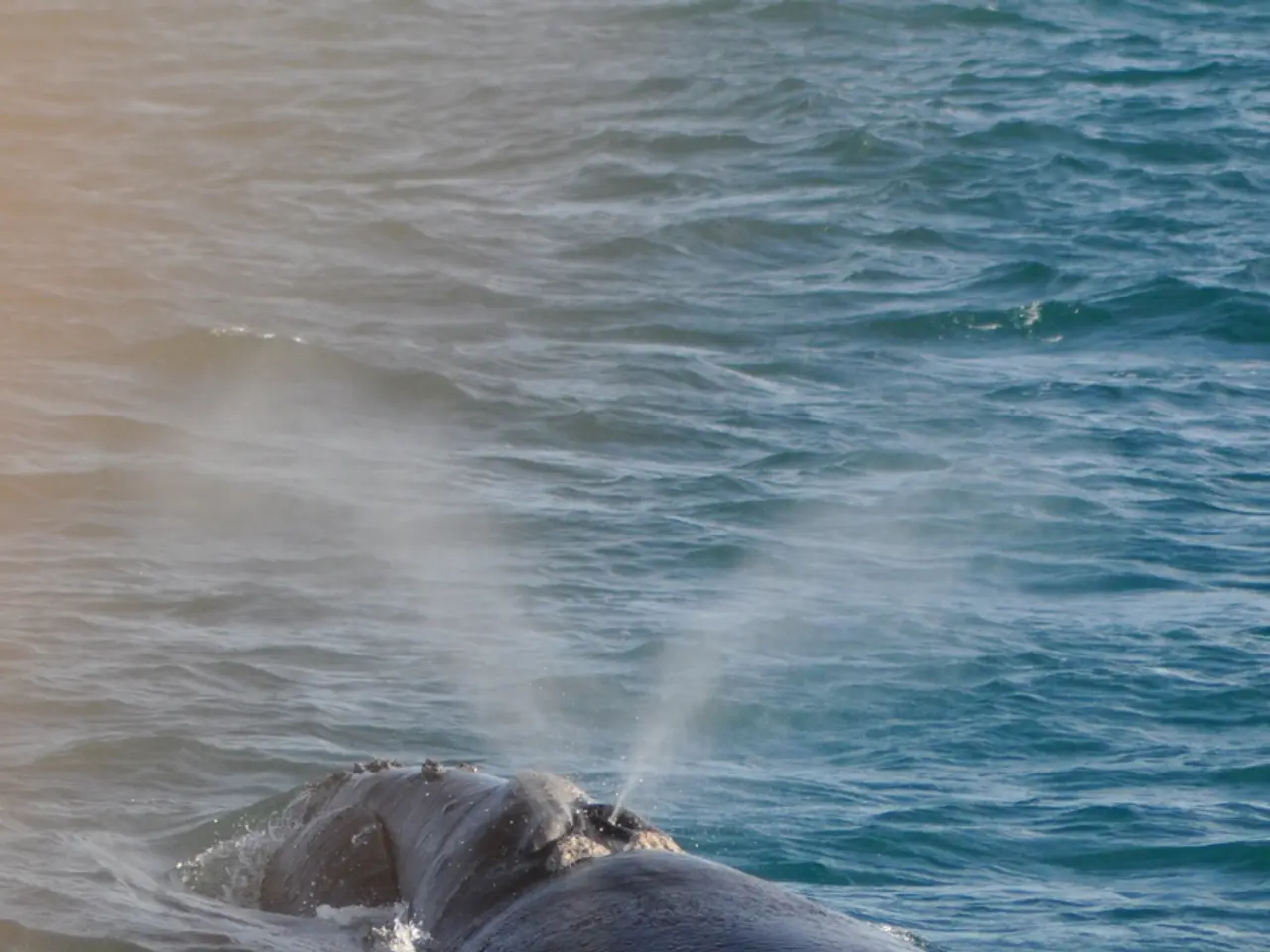Silent Blue Whales: Scientists Issue Fraught Alarm Call
In the depths of the ocean, a symphony of life plays out, with various creatures contributing to the ocean's soundtrack. Jarrod Santora, an ecosystem oceanographer at the National Oceanic and Atmospheric Administration (NOAA), emphasizes this point. However, listening to these ecosystems is not just a fascinating pastime; it's crucial if we hope to protect them, according to marine ecologist Dawn Barlow.
Barlow, a Marine Ecologist at Oregon State University, refers to blue whales as "sentinels" of ocean health. Changes in their behavior reflect larger shifts in the marine environment. For instance, during the marine heatwave known as "The Blob", first detected in 2013 and expanding along the Pacific Coast, blue and fin whales faced a significant challenge. The heatwave led to a drop in krill numbers, making them harder to find, causing blue whale vocalizations to drop by nearly 40% during the heatwave years.
The average duration of marine heatwaves has tripled since the 1940s, and extreme events like "The Blob" are predicted to become more frequent and severe in the future. In 2015, a research team led by Monterey Bay Aquarium Research Institute's Biological Oceanographer John Ryan began monitoring the ocean's soundscape, unaware of the approaching marine heatwave.
The ocean's soundscape, including whale songs, is being monitored year after year using a network of hydrophones anchored 3000 feet below the surface off California's coast. Underwater noise levels fell during the Covid-19 lockdown as shipping traffic dropped.
In New Zealand's South Taranaki Bight, a similar pattern was observed between 2016 and 2018. Blue whale "D calls", linked to feeding, fell during warm-water years, and their patterned mating songs decreased the following season. The fate of the blue whale and the health of the oceans we all depend on could be determined by whether we answer the warning from the blue whale's quieter songs.
Humpback whales, which have more varied diets, continued to sing through the disruption, while blue whales, whose feeding strategy depends on massive, high-reward gulps of krill-rich water, had quieter oceans during lean years.
The science is clear - climate change is transforming the oceans, affecting organisms from the smallest plankton to the largest predators. Marine animals shifted into areas usually disrupted by human activity during the Covid-19 lockdown. Long-term acoustic monitoring could help policymakers respond faster to environmental stress, regulate industrial noise, and identify critical feeding or breeding habitats.
Holger Klinck, a researcher who collaborated with the Monterey Bay Aquarium Research Institute, was one of the authors of a 2021 scientific paper on the effects of ocean warming and noise protection measures on blue whale singing activity. The message from the ocean's largest singers (blue whales) is that their songs are growing quieter. We cannot afford to wait centuries to act regarding climate change's impact on the oceans, as blue whales can live for 80 years or more. It's time to listen carefully to the ocean's soundtrack and heed the warnings it offers.
Read also:
- Peptide YY (PYY): Exploring its Role in Appetite Suppression, Intestinal Health, and Cognitive Links
- Toddler Health: Rotavirus Signs, Origins, and Potential Complications
- Digestive issues and heart discomfort: Root causes and associated health conditions
- House Infernos: Deadly Hazards Surpassing the Flames








